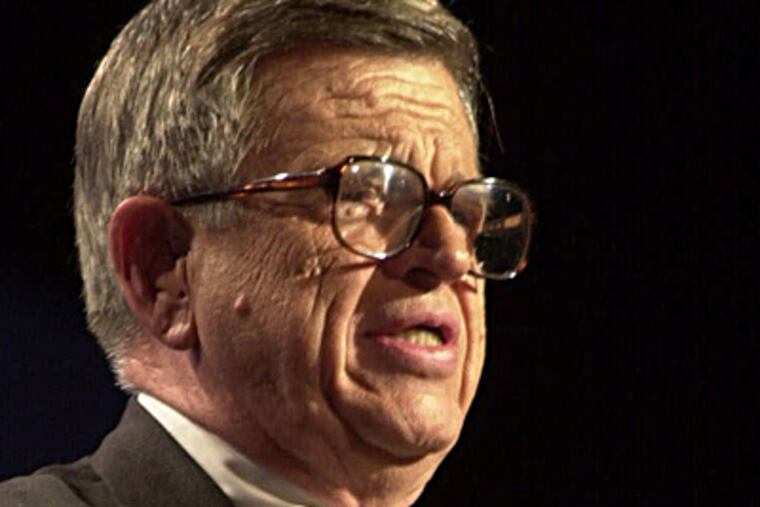Charles Colson, scandal and faith
WASHINGTON - He was described as the "evil genius" of the Nixon administration, and spent the better part of a year in prison for a Watergate-related conviction. His proclamations after his release, that he was a new man, redeemed by his religious faith, were met with more than skepticism by those angered at the abuses he had perpetrated as one of Richard Nixon's hatchet men.

WASHINGTON - He was described as the "evil genius" of the Nixon administration, and spent the better part of a year in prison for a Watergate-related conviction. His proclamations after his release, that he was a new man, redeemed by his religious faith, were met with more than skepticism by those angered at the abuses he had perpetrated as one of Richard Nixon's hatchet men.
But Charles "Chuck" Colson spent the next 35 years steadfast in his efforts to evangelize to a part of society scorned just as he was. And he became known perhaps just as much for his efforts to minister to prison inmates as for his infamy with Watergate.
Mr. Colson died Saturday at age 80. His death was confirmed by Jim Liske, chief executive of the Lansdowne, Va.-based Prison Fellowship Ministries that Mr. Colson founded. Liske said the preliminary cause of death was complications from brain surgery Mr. Colson had at the end of March. He underwent the surgery to remove a clot after becoming ill March 30 while speaking at a conference.
He once said he'd walk over his grandmother to get the president elected to a second term. In 1972, the Washington Post called him "one of the most powerful presidential aides, variously described as a troubleshooter and as a 'master of dirty tricks.' "
"I shudder to think of what I'd been if I had not gone to prison," he said in 1993.
He helped run the Committee to Re-elect the President when it set up an effort to gather intelligence on the Democratic Party. The arrest of CREEP's security director, James W. McCord, and four other men burglarizing the Democratic National Committee offices in 1972 set off the scandal that led to Nixon's resignation in August 1974.
But it was actions that preceded the actual Watergate break-in that resulted in Mr. Colson's criminal conviction. He pleaded guilty to efforts to discredit Pentagon analyst Daniel Ellsberg. It was Ellsberg who had leaked the secret Defense Department study of Vietnam that became known as the Pentagon Papers.
The efforts to discredit Ellsberg included use of Nixon's plumbers - a covert group established to investigate White House leaks - in 1971 to break into the office of Ellsberg's psychiatrist to look for information that could discredit Ellsberg's antiwar efforts.
The Ellsberg burglary was revealed during the course of the Watergate investigation and became an element in the wider scandal. Mr. Colson pleaded guilty in 1974 to obstruction of justice in connection with attempts to discredit Ellsberg, though charges were dropped that Mr. Colson actually played a role in the burglary of the office of Ellsberg's psychiatrist. Charges related to the actual Watergate burglary and cover-up were also dropped. He served seven months in prison.
Before Mr. Colson went to prison, he became a born-again Christian.
He stayed with his faith after Watergate and went on to win praise - including the prestigious Templeton Prize for Progress in Religion - for his efforts to use it to help others.
He created the Prison Fellowship Ministries in 1976 to minister to prisoners, former prisoners, and their families. It runs work-release programs, marriage seminars, and classes to help prisoners after they are released. He was a Boston native who earned his bachelor's from Brown University in 1953 and served as a captain in the Marines from 1953 to 1955.